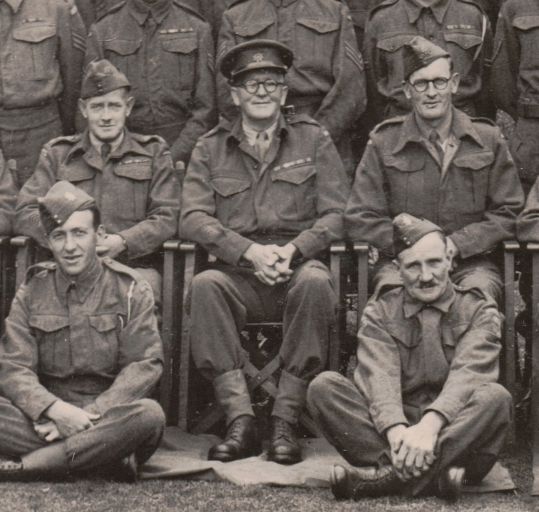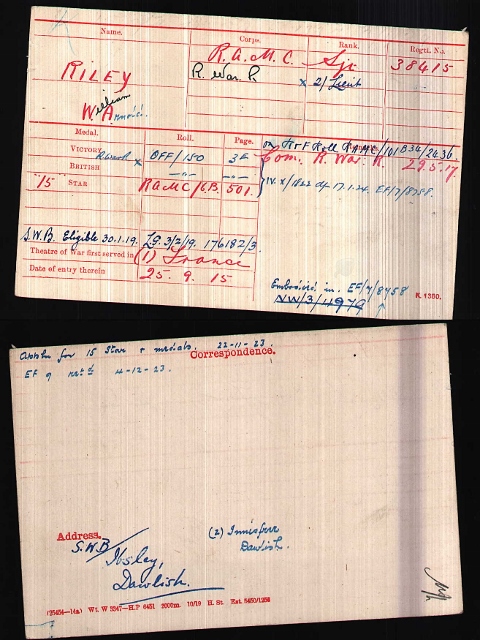Though not recorded on the nominal roll or on Hancock data Major Arnold Riley is known to have been influential in the formation of Auxiliary Units in the Dawlish area. He was later to be in command of “B” Company (Dawlish) 9th (Newton Abbot) Battalion Home Guard.
In an undated excerpt from the Exeter Express and Echo; ‘We met up with Professor Arnold Riley from Exeter University who took us out to Dawlish Woods with explosives and showed us how to sabotage and blow up German tanks and lorries should they invade. You have to remember that at that time everyone was very nervous and worried and tension was high about an invasion that seemed imminent. Prof. Riley told us ‘I don’t suppose you will live very long.’
He appears to have remained in contact with and supportive of the Patrols as he was a guest at their first reunion dinner at The Anchor Hotel in Kennford in 1946. A later reunion in December 1950 has Riley and Devon Intelligence Officer, by then, Colonel Edmundson as guests of honour. A surprisingly large number of Group 5 were awarded the Defence Medal after stand down and it is rumoured that this was due to lobbying by Major Riley.
He was remembered as an excellent communicator and Officer and as a true gentleman.
| Unit or location | Role | Posted from | until |
|---|---|---|---|
| Devon Group 5 - Dawlish | Assistant Group Commander | Unknown | Unknown |
University lecturer
Born at Hyde, in Cheshire 20th September 1891.
1 Oct 1914 Enlisted for short (War) service at London, effective from 29th September 1914 for the Royal Army Medical Corps aged 23 years. Standing 5 feet, 11 inches tall, with a fresh complexion and brown eyes and hair, having a scar across the middle of his forehead. A Schoolmaster by profession giving his next of kin as his father the Reverend William Riley of 44 East Lane, Barrow in Furness.
25 Sept 1915 Served in France with the 75th Field Ambulance unit
16 Nov 1916 Awarded the Military Medal in the London Gazette for ‘Removing men under fire’.
31 Dec 1916 Returned home to England arriving on January 1st 1917.
29 May 1917 Commissioned into 15th Battalion, Royal Warwickshire Regiment. With 13th Brigade of 5th Division.
4 Oct 1917 In the early morning action on the German trenches at 0600hrs he went into action coming up from the support trenches at ‘Tor Top’ this from previous action at ‘Stirling Castle’. That morning 2nd Lieutenant, William Arnold Riley was severely wounded in action together with 6 other ranks killed, 64 wounded and 9 missing.
3 Dec 1917 His wounds being so severe he was returned to England and sent to the American Woman’s War Hospital followed by the Beaufort War Hospital, Bristol. He contracted T.B. from suffering from Trench Fever and in need of Sanatorium treatment at the Mendip Sanatorium, Bristol. Staying there till he was allowed home after March 1919.
Riley later became an independent lecturer at University College of the Southwest, Exeter.
He was married to Mary Vicentia Blanche Edwardrina Kemeys-Tynte on 12 Jun 1915
1939 Register
Dawlish Museum
Exeter & Plymouth Gazette 15 Dec 1950, Undated Exeter Express & Echo
TNA ref WO339/90808
London Gazette 28 Jun 1917 (R Warks commission)

